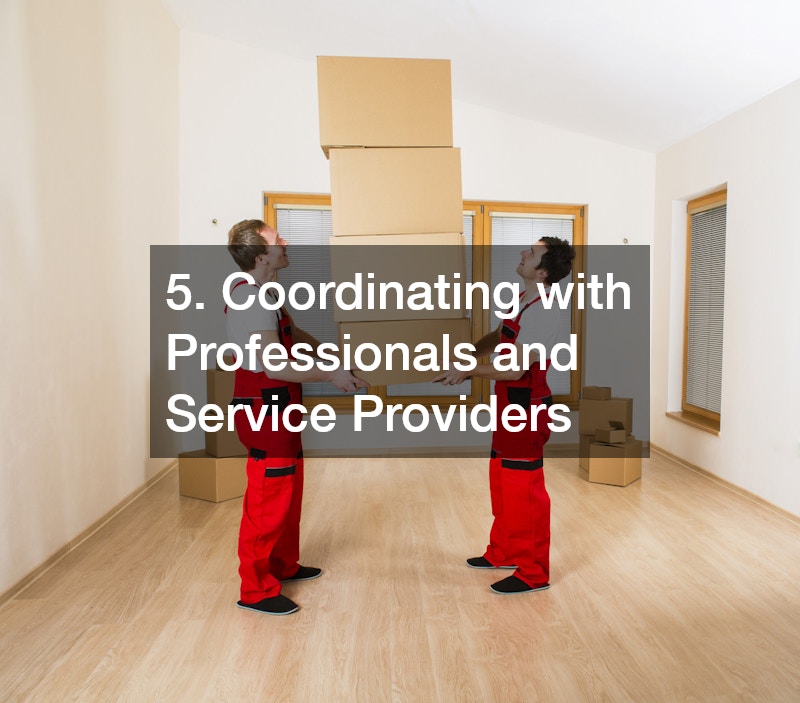
Moving can be both exciting and daunting. On one hand, you are about to experience a fresh environment, meet new people, and explore different possibilities in a new space. On the other hand, the practical aspects of uprooting your entire life—packing up everything you own, finding a new place to live, coordinating with service providers, and adjusting to an unfamiliar neighborhood—can be overwhelming. Fortunately, there are effective ways to manage these logistics so you can focus more on the excitement of your new home rather than the stresses of the process. In this comprehensive guide, you will find local moving tips that cover various stages of the journey: from the moment you decide to move to the day you settle comfortably into your new residence.
Local moves can sometimes be more involved than you’d initially think. Just because your new home is nearby does not guarantee minimal hassle. In fact, the logistics of relocating within a tight geographic radius often come with unique challenges, such as coordinating schedules, timing utility changes, and accessing the right professional help. Whether you’re considering a do-it-yourself approach or hiring one of the best moving companies to lighten the load, the process requires attention to detail from start to finish.
Below, we break down the most important moving tips to help you avoid unnecessary pitfalls. We’ll also discuss crucial services and professional contacts—like a real estate broker, a home construction company, or a residential electrician—that might come in handy before, during, or after the move. By planning, budgeting, and using the right resources, you can ensure a far smoother move, even if it’s just a short drive away.
1. Planning Ahead and Setting a Timeline
One of the most critical local moving tips is to start planning as early as possible. Even if you’re only relocating a few blocks away, organizing the move can turn into a major project if you wait until the last minute.
- Create a moving checklist: Jot down every possible task, from scheduling utility disconnections and reconnections to buying packing materials. By keeping track of each item, you reduce the risk of forgetting something important.
- Determine your moving date: Coordination is often trickier than you think. If your new place isn’t ready yet due to pending inspections or final touches by local home builders, you might need storage solutions or flexible move-in dates. Having a clear timeline will keep you on track.
- Book professional services: If you plan to use a truck rental service or hire moving companies, reserve well in advance. Last-minute bookings can be more expensive or limited in availability.
Thinking ahead is crucial because it aligns all moving parts—ranging from your schedule to any hired help. In the context of local moving tips, it’s often the small details, such as changing your address with various agencies or scheduling a residential electrician for any last-minute fixes, that can make the difference between a flawless move and a chaotic one.
2. Budgeting for Your Move
Finances can become a stumbling block if not addressed at the outset. While local moves tend to cost less than long-distance relocations, they still entail various expenses that you should anticipate. Setting a budget is another essential entry in the list of moving tips because it helps you manage potential surprises.
- Consider potential professional costs: Even if you plan a DIY move, you might need services beyond renting a moving truck. For example, you might need a real estate broker to help finalize your new lease or purchase, or a home construction company to handle minor renovations before or after moving in.
- Factor in possible overlaps: You might be responsible for rent or mortgage payments on two homes simultaneously for a short period. This overlap can strain finances if you haven’t planned for it.
- Set aside contingency funds: Unexpected costs can include last-minute packing materials, repairs required by your landlord, or fees for an urgent clean-out service. Having a small buffer is one of the more overlooked yet valuable local moving tips.
When you establish a realistic budget, you reduce stress and maintain control over your finances. This makes the moving process smoother overall and minimizes any unwelcome fiscal surprises.
3. Deciding What to Keep, Sell, or Donate
Clutter can quickly transform a local move into a stressful ordeal. Among the most practical local moving tips is to purge unnecessary items well before your moving date. By doing so, you reduce both the time and costs associated with packing and hauling items you might never use again.
- Sort through belongings by category: Go room by room or category by category (such as clothing, books, and kitchenware), deciding which items still serve a purpose in your life.
- Sell or donate: Items in good condition can be sold through garage sales or online marketplaces. Alternatively, donate to local charities. You not only lighten your load but also help your community.
- Dispose responsibly: Some items like electronics require special disposal. Look for local e-waste programs or recycling facilities that can handle these materials.
Purging goes beyond physical clutter. It’s also an opportunity to mentally prepare for your new environment and only take along what is truly valuable. This mindset is at the heart of moving tips that emphasize efficiency and intentionality.
4. Gathering Quality Packing Materials and Efficient Packing
Another set of moving tips revolves around packing. The efficiency and care you invest in packing can significantly impact the speed and ease of both moving day and the unpacking process.
- Choose sturdy boxes: While you might gather free boxes from supermarkets, remember that not all boxes are created equal. Consider purchasing specialized moving boxes or reusing ones from previous moves, provided they are still sturdy.
- Label everything: Write the contents of each box and its designated room. If it’s fragile, label it clearly. This step will help you and the movers—whether friends or one of the best moving companies—place boxes in the correct rooms upon arrival.
- Pack systematically: Start with items you use infrequently. Seasonal clothing, decorative pieces, and rarely-used kitchen appliances can go first. Closer to the move date, pack daily essentials.
Remember to pack a “first-day essentials box,” containing toiletries, snacks, pet food, chargers, and a change of clothes. Having immediate access to these items when you arrive is one of those moving tips that can prevent first-night frustrations.
5. Coordinating with Professionals and Service Providers
Local moves often benefit from community-based knowledge and relationships. Whether you’re hiring one of the best moving companies or leaning on a truck rental service for a self-move, professional assistance can make a huge difference. Beyond movers, you may need specialized services before, during, or after the move.
- Movers or truck rental: If you’re on a tight budget, a truck rental service might be the way to go, especially for short distances. If you have heavy furniture and limited time, professional moving companies can handle the job swiftly.
- Real estate services: A real estate broker can help you finalize contracts quickly, handle negotiations, and manage paperwork with minimal hassle. This is often overlooked in moving tips, but expert guidance can save you significant time and money when you’re buying or renting.
- Home services: Should you need renovations, additions, or custom homes built, a home construction company or local home builders can step in. A custom home building service is especially relevant if you’re upgrading or customizing your new living space to meet specific needs. Even small projects, like home additions or new flooring, can benefit from professional input.
- Utility transfers and inspections: If your new place needs electrical work or upgrades, scheduling a residential electrician in advance avoids any delays in setting up. Additionally, if you’re renting, the landlord might require an inspection to confirm the electrical system is up to code.
Integrating professionals into your plan allows you to delegate tasks effectively and helps you avoid many of the common pitfalls of a poorly coordinated move.
6. Preparing the New Residence Before Moving Day
One of the wisest local moving tips is to get your new home ready before you start unloading boxes. Handling repairs, cleaning, or basic decorating in an empty space is easier and quicker.
- Deep clean in advance: Hiring a cleaning service or spending a few hours scrubbing an empty home ensures you unpack into a fresh, welcoming environment.
- Schedule repairs and installations: If you’re planning home additions or need a custom home building service for a small renovation, tackle these projects before you bring in furniture. It’s much simpler for contractors to navigate and less stressful for you.
- Check utilities and appliances: Make sure everything from the water supply to the internet connection is functional. If you need specialized work, such as installing custom lighting or additional outlets, contact a residential electrician ahead of time.
The more you can get done in the space prior to moving day, the more seamless your transition will be. Having a clean, functional new residence is among the most rewarding local moving tips because it sets a positive tone from the outset.
7. Managing Family, Pets, and Other Personal Considerations
Moving can be particularly challenging if you have a large family, small children, or pets. The emotional and logistical elements multiply as you try to maintain a sense of normalcy amidst chaos. Here are some local moving tips tailored for families and pet owners:
- Communicate the plan: Share the moving schedule and expectations with all household members so everyone understands their roles and timelines.
- Child-friendly tasks: Giving children small tasks—like labeling or sorting their toys—helps them feel involved and reduces their anxiety about the upcoming change.
- Pet accommodations: On moving day, it might be best for pets to stay in a quiet room or with a sitter. Animals can become stressed with frequent comings and goings, new smells, and the general disruption of their environment.
- Set up the new room first: If you have young kids or anxious pets, focus on making their new room or area comfortable and familiar as soon as you arrive. This can help ease the transition.
Emotional preparedness can’t be overlooked. Offering reassurance and clear explanations to everyone affected by the move can help keep stress levels manageable.
8. Staying Organized on Moving Day
Despite thorough planning, moving day can be hectic. Maintaining organization and composure is key. Consider these local moving tips for the day of the move:
- Confirm logistics: Double-check that movers or the truck rental service arrives on time. Have a copy of your contract or reservation details on hand in case of any disputes or misunderstandings.
- Protect floors and doorways: Use plastic or cardboard to shield flooring and walls from scrapes and scratches. This is important in both the old and new residence.
- Assign tasks: If friends or family are helping, assign clear tasks to each person to avoid confusion. You might have one group disassembling furniture while another group loads the truck.
- Monitor valuables: Keep essential documents, jewelry, and important personal items with you rather than loading them in the moving truck. This ensures they don’t get lost in transit.
A well-coordinated and efficient moving day sets the stage for a positive experience overall. Even if things don’t go perfectly, your preparation and organizational strategy can mitigate most issues.
9. Unpacking and Settling into Your New Space
Getting everything into your new home is only half the battle. Unpacking and settling in is equally important, and local moving tips often focus on making the most of the first few days in your new surroundings.
- Unpack systematically: Begin with the rooms you use the most, such as the kitchen, bathroom, and bedrooms. Once the essentials are in place, move on to less critical spaces.
- Check for damages: Inspect furniture and fragile items for any damage that might have occurred during the move. If you hired moving companies, document and report any issues promptly for possible insurance claims.
- Create a familiar ambiance: Put up a few decorations or family photos to make your new place feel like home. Familiar sights and items can ease the transition for everyone in the household.
- Get to know your neighborhood: One of the lesser-discussed local moving tips is to embrace your new community. Take a stroll, meet neighbors, and learn the local amenities and services like grocery stores, parks, and medical facilities.
Unpacking is often the first big step in truly feeling settled. By approaching it methodically, you can avoid creating clutter in your new environment and start off on the right foot.
Moving locally may seem deceptively straightforward, but it requires ample planning, organization, and the right professional contacts. By applying the local moving tips detailed above, you can streamline each aspect of your move—from decluttering and packing to scheduling a truck rental service or coordinating with one of the best moving companies in town. Engaging a real estate broker, a home construction company for renovations, or a residential electrician for safety checks can further ensure that you enter your new home with peace of mind.





